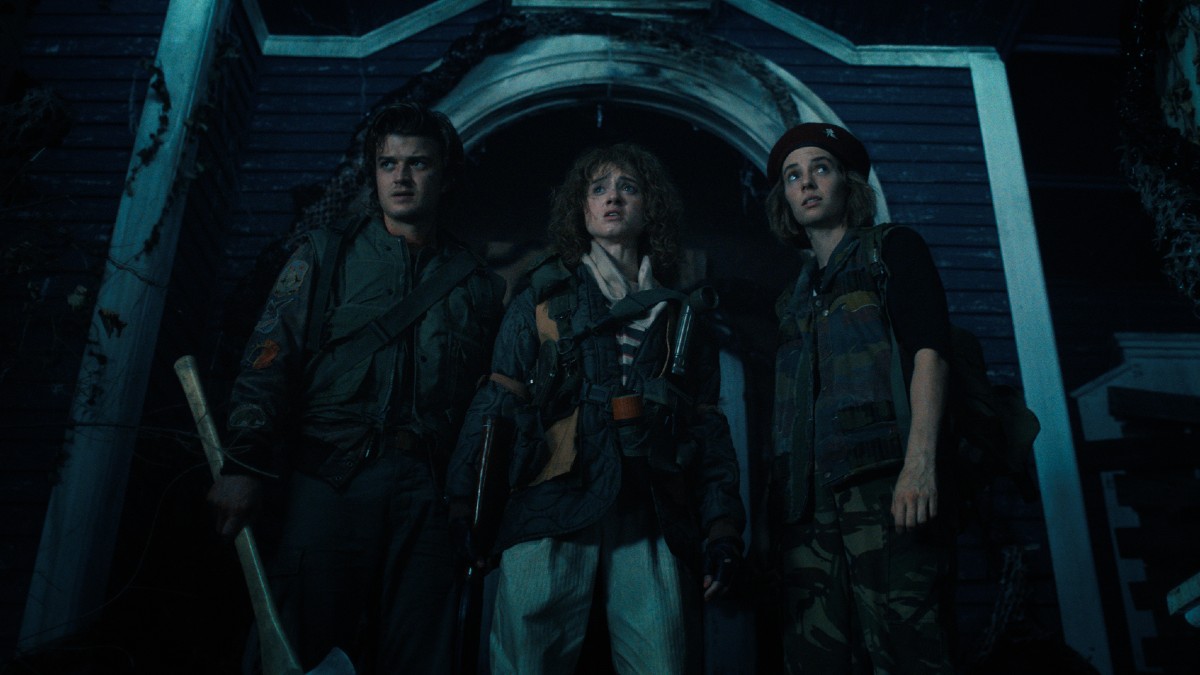
This article contains spoilers for the Game of Thrones finale.
Stranger Things’ ending is finally on the horizon. With season 5 over halfway done filming and Netflix attaching a tentative 2025 release window to the series, the legendary sci-fi horror show is getting frighteningly close to concluding its story nearly a decade after introducing the world to Hawkins, Indiana and the Upside Down. The massive amount of time between season 4 and season 5 has given fans more than enough of a gap to speculate about the ending, but the people making the show shouldn’t be listening to fan opinions.
Instead, the Duffer brothers and their team of writers can look for inspiration from fellow programs that ended recently for hints, clues, and examples of how to construct the conclusion to their saga. Artistry comes from the oddest places, even when it’s a finale that people don’t have a fond recollection of. Five years after Game of Thrones crashed the plane in season 8 and let down fantasy fans by not closing George R. R. Martin’s story in a satisfying way, Stranger Things can learn from its massive pop culture peer.
Give the Story Time to Develop
While a lot of fans had major issues with the plotting decisions in Game of Thrones’ final campaign, the events that occurred may have been more easily digestible if there had been more time for the story to develop. A truncated six-episode arc made everything feel like a whirlwind. One second we were watching the last of the living conspire against the land of the dead. The next week it felt like the Battle of Winterfell didn’t even matter as allegiances were erased and the war between Cersei Lannister (Lena Headey) and Daenerys Targaryen (Emilia Clark) took on the burden of a climactic endgame.
Part of this failure was HBO’s fault. While the runtimes were extended over an hour for nearly every episode of Game of Thrones, there still wasn’t enough for the writing team to work with. The series always liked to use big lead-ups to build tension and make the last episodes of each season shine. Without that middle area, the conclusion didn’t receive the respect it deserved and the plot choices were made irrelevant. No storyline would have worked within the timeframe it was given.
Netflix has seemingly given Stranger Things a lot more creative liberty than HBO gave Game of Thrones. There will be the usual eight episodes in the final season, which is the same number as in the previous ones (though season 2 and season 4 each had one extra episode). Maya Hawke (who plays Robin) said in an interview that each episode will be equal to a movie, both in runtime and scope. While we could argue all day about the merits of TV becoming more like cinema and whether it is a good or a bad thing for the medium, one thing is for certain: Stranger Things is being given plenty of time here. If the creative team can’t find the right pacing of the final season, it won’t be because they had a lack of resources.
Stay True to The Characters
The shortened final season of Game of Thrones made it hard for character motivations to make sense. The most controversial ending was obviously Daenerys’. Fans of the Breaker of Chains were shell-shocked when the self-proclaimed heir to the Iron Throne turned into Westeros’ version of John Leonard Orr. Dany the arsonist was not on the Game of Thrones bingo card after seven seasons of her being a merciful queen. This wasn’t the only knee-jerk juxtaposition the writers enacted. Jon Snow (Kit Harington) went from an Aragorn-ish ass-kicker to a whimpering warrior who wandered the wastelands of battlefields throughout the show’s biggest scenes. It made fans sad that the people writing the scripts seemed to have lost track of their characters’ motivations and moral codes.
Stranger Things’ biggest strength is its heroic cast of characters, featuring an impressive mix of adults and teenagers working in unison to save a sleepy Midwestern town from the supernatural. The series’ core has always been the moral high ground of its protagonists. With that comes one of the strongest connections between a set of characters and fans in TV history. The people writing for Stranger Things must closely analyze what makes each of these people tick before closing their stories. Understanding this consistency and aligning the finish with what has been hinted at in the first four seasons should allow the Hawkins crew to close their book on a satisfactory note.
Don’t Turn Stranger Things Into World War III
We all love a good Game of Thrones battle scene, but the length and quantity of war sequences in season 8 went a little too far. The series was a people-led drama for seven seasons that crafted intricate interpersonal and familial conflicts, and the violence worked well in conjunction with verbal sparring and backstabbing. The final affair dedicated so much time to armies marching against each other that many fans felt they were watching a Michael Bay summer popcorn flick instead of the more intimate human spectacle they were accustomed to.
Stranger Things must make sure it learns from Game of Thrones’ overuse of CGI and ground the final season in the individual characters, just as it has always done during the first four seasons. Even though there was a jaw-dropping battle between Vecna and Eleven last season, the final 30 minutes of the finale solemnly brought people back together for tear-jerking reunions (I’m still not over Eleven and Hopper’s conversation in the cabin). There is a much-needed place for bloodshed as the kids rid Hawkins of the Upside Down’s demons, but the fallout of those battles must take final precedence over everything else. Putting people first over monsters will allow Stranger Things to prevail and right the wrongs of Game of Thrones’ past.
The post What Stranger Things Can Learn From Game of Thrones’ Ending appeared first on Den of Geek.











